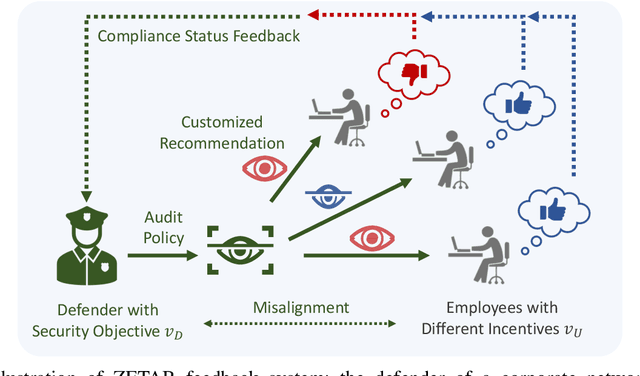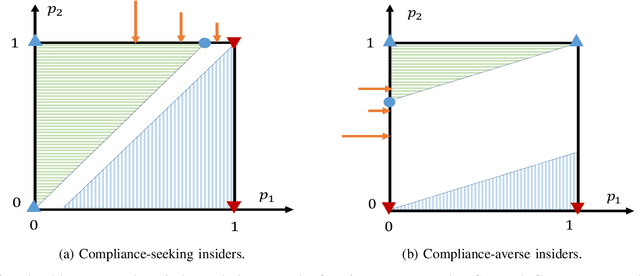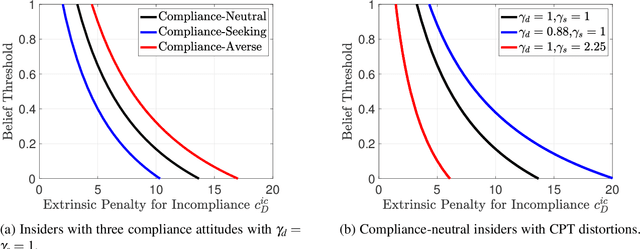ZETAR: Modeling and Computational Design of Strategic and Adaptive Compliance Policies
Paper and Code
Apr 05, 2022



Security compliance management plays an important role in mitigating insider threats. Incentive design is a proactive and non-invasive approach to achieving compliance by aligning an employee's incentive with the defender's security objective. Controlling insiders' incentives to elicit proper actions is challenging because they are neither precisely known nor directly controllable. To this end, we develop ZETAR, a zero-trust audit and recommendation framework, to provide a quantitative approach to model incentives of the insiders and design customized and strategic recommendation policies to improve their compliance. We formulate primal and dual convex programs to compute the optimal bespoke recommendation policies. We create a theoretical underpinning for understanding trust and compliance, and it leads to security insights, including fundamental limits of Completely Trustworthy (CT) recommendation, the principle of compliance equivalency, and strategic information disclosure. This work proposes finite-step algorithms to efficiently learn the CT policy set when employees' incentives are unknown. Finally, we present a case study to corroborate the design and illustrate a formal way to achieve compliance for insiders with different risk attitudes. Our results show that the optimal recommendation policy leads to a significant improvement in compliance for risk-averse insiders. Moreover, CT recommendation policies promote insiders' satisfaction.
 Add to Chrome
Add to Chrome Add to Firefox
Add to Firefox Add to Edge
Add to Edge